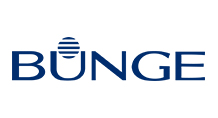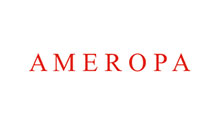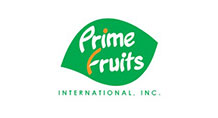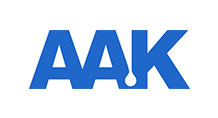Corporate Social Responsibility
Ensuring stable supply through sustainable and socially responsible farming, and
thorough care and prioritization of farmers and the environment.

Industry Challenges
According to the findings of the Coconut and Coconut Oil Roundtable, rapid expansion of the global coconut market has been fueled by the widespread use of coconut in beauty, food and beverage, and pharmaceutical industries in recent years. Goldstein Research cited that coconut oil output in the Asia Pacific is currently growing at a pace of 1.3 percent per year with the Philippines and Indonesia at the helm as the world’s leading producers. Demand, however, is exceeding supply with both consumers and buyers seeking sustainably sourced coconut products.
Sustainable coconut has huge market potential, but the industry also faces critical production hurdles such as senile (aged) trees, natural disasters, disaggregated and complex value chain structures, and producers’ restricted access to market, finance, and technical know-how. These obstacles, when combined with falling commodity prices, result in stagnant yields, poor income, and a lack of desire to invest in the industry.
Our Sustainable Long-Term Solution
Tree Planting
DBCOM and TMOMI provide handpicked, high-quality coconut seedlings to farmers for improved coconut tree and coconut reliability and quality.
educating farmers of best agricultural practices
Knowledge of the latest standards and best practices of the global industry ensures responsible planning and harvesting and allows for reliable supply while maintaining environmental responsibility.
Providing Price Premium to Farmers
Improving the livelihood of farmers ensures a stable and reliable supply of premium coconut, from sustainable planting to harvesting.
Sustainability Goes Both Ways
LOCAL EMPLOYMENT
Davao Bay Coconut Oil Mills Inc. (DBCOM) commits to promoting local employment and improving the welfare and quality of life in local communities through active partnerships with Local Government Units (LGUs) and other organizations within Region XI.
Local Education
In 2012, DBCOM initiated a feeding program for the undernourished students of the Daniel Perez Elementary School in Bunawan, Davao City in support of the Department of Education's thrust in strengthening nutrition and human resource capabilities. This program, designed for elementary and secondary school students, aims to increase student achievement amidst the challenging educational landscape through proper nutrition and wellness. DBCOM also led the renovation of nearby daycare centers to help children and families cope with childcare struggles and strengthen student motivation. DBCOM prioritizes Corporate Social Responsibility through participation, partnership, and support of community outreach programs to promote the betterment of surrounding communities.
GOVERNMENT COMPLIANCE & ENVIRONMENTAL PROTECTION
DBCOM adheres to government laws and regulations in its areas of operations and continues to uphold practices geared for environmental protection and sustainability.
SUPPORT FOR LOCAL PROGRAMS
In 2016, DBCOM supported the launch of the National Greening Program of the Government, 1.5 Billion Trees for 1.5 Million Hectares, facilitated by the DENR - CENRO, Region XI. The company has been a consistent and active partner of nearby Barangay Centers in community programs and projects.
Environmental Policy
DBCOM is committed to complying with all laws and regulations governing the environment. The company strives to minimize its impact on the environment by promoting environmental awareness in all company operations and supporting sustainable farming practices. With this, DBCOM has implemented various policies and practices for sustainable development and the protection of the environment.
Deforestation, Replanting, or Burning Practices
DBCOM primarily partners with small-scale or homegrown coconut farmers from far-flung and mountainous regions where coconut trees abundantly grow and thrive. The company seeks to adhere to critical environmental policies that aim to preserve these resources. As such, DBCOM endeavours to source from farmers who do not engage in deforestation, clearance of sloping and critical areas, replanting in natural forests, and farming on peat land. To safeguard these sustainable practices, DBCOM closely works with partner farmers in monitoring and assisting their plantation of new seedlings. Coconut trees reach maturity after approximately 4 to 10 years and with proper care and maintenance, can live up to 90 - 100 years. With this, DBCOM is committed to employing partner farmers who do not engage in slash and burn operations. DBCOM recognizes the need to preserve resources for future generations. To reinforce its policies on sustainable farming, the company seeks to continue educating partner farmers as well as providing support in the maintenance of coconut plantations.
Storage and Transportation
DBCOM closely works with farmers and raw material or copra suppliers to ensure food safety practices from planting to processing of coconuts. Farmers and raw material or copra suppliers are encouraged and trained to adhere to best practices in transportation and storage of coconuts. The company discourages the use of plastic sacks during transportation and storage of coconuts to prevent contaminants.
Processing of Copra
To ensure organic and safe copra processing practices, DBCOM assists farmers in building concrete kilns for roasting and drying coconut. The company encourages the use of organic kindling such as coconut husks or dry leaves in the drying process to ensure that the end product is free of contaminants.
DBCOM’s farmer programs include:
- Training for sustainable farming and fair pricing
- Training for organic farming (discontinuing the use of pesticides and fertilizers, ensuring that products are free of contaminants or pollutants)
- Promoting sustainability and social responsibility amongst farmers and raw material or copra suppliers
- Providing coconut seedlings to farmer cooperatives as well as monitoring of seedling plantation
- Ensuring fair crop premiums
Use of Agrochemicals
DBCOM is committed to producing safe and organic coconut-oil based products. With this, the company has refrained from using ordinary lubricants and has switched to food-grade lubricants during the production process. The company utilizes lubricants that undergo strict mineral oil level tests for food grade use.
Our Social Policies
DBCOM is committed to complying with and upholding all labor laws and regulations, and internationally recognized human rights as stated in the Philippine Constitution, and the Philippine Labor Code. The company is committed to the protection of the rights of all its employees and stakeholders.
Fundamental Labor Rights
- Uphold the rights of all workers
- No forced labor pursuant to Philippine Republic Act No. 9208 or the Anti-Trafficking in Persons Act of 2003, and the Philippine Labor Code
- No child labor and the protection of children from exploitation as well as physical, sexual, mental, and emotional abuse pursuant to Philippine Republic Act No. 9231 or the Special Protection of Children Against Child Abuse, Exploitation and Discrimination Act, Philippine Republic Act No. 9208 or the Anti-Trafficking in Persons Act of 2003 and the Philippine Labor Code
- Observance of ethical recruitment practices in accordance with the Philippine Labor Code
- Equal protection and prohibition of discrimination based on ethnicity, race, religion or belief, political inclination, social class, sex, gender, sexual orientation, gender identity, gender expression, civil status, medical condition, or any other status in accordance with Philippine Senate Bill No. 2122 or the Anti-discrimination Act, the 1987 Constitution and the Philippine Labor Code
- Provision of safe and healthy work environments free from violence and harassment in accordance to the Philippine Labor Code
- Freedom of association and collective bargaining as stated in the Philippine Labor Code
- Compliance with all laws and regulations relating to fair and proper remuneration as stated by the Philippine Labor Code
- Compliance with mandated work hours as stipulated in the Philippine Labor Code
- Provision of social security and other benefits as stipulated in the Philippine Labor Code
- Provisions and protection for vulnerable workers
Indigenous People and Local Communities
DBCOM is committed to respecting and upholding the rights of indigenous peoples and local communities as protected in the Philippine Indigenous Peoples’ Rights Act of 1997.
Support to Partner Farmers
To maintain DBCOM’s commitment to sustainable, environment-friendly, and socially responsible standards across the company’s supply chain processes, the company closely works with farmers through training and various programs that educate and promote clean and sustainable farming practices.
DBCOM’s farmer programs include:
- Training for sustainable farming and fair pricing
- Training for organic farming (discontinuing the use of pesticides and fertilizers, ensuring that products are free of contaminants or pollutants)
- Promoting sustainability and social responsibility amongst farmers and raw material or copra suppliers
- Providing coconut seedlings to farmer cooperatives as well as monitoring of seedling plantation
- Ensuring fair crop premiums
Animal Welfare
DBCOM strictly adheres to all laws and regulations governing the protection and welfare of animals pursuant to Philippine
Republic Act No. 10631 or the Animal Welfare Act of 1998.
We’d love to hear from you
Contact us today!





















